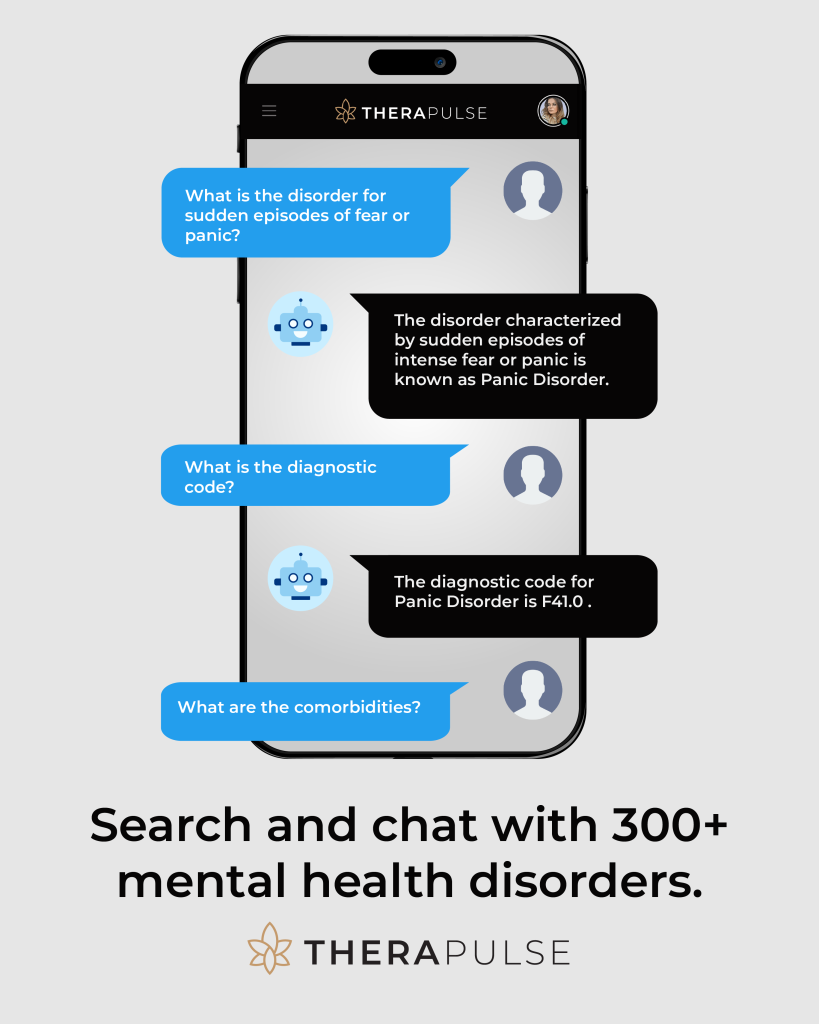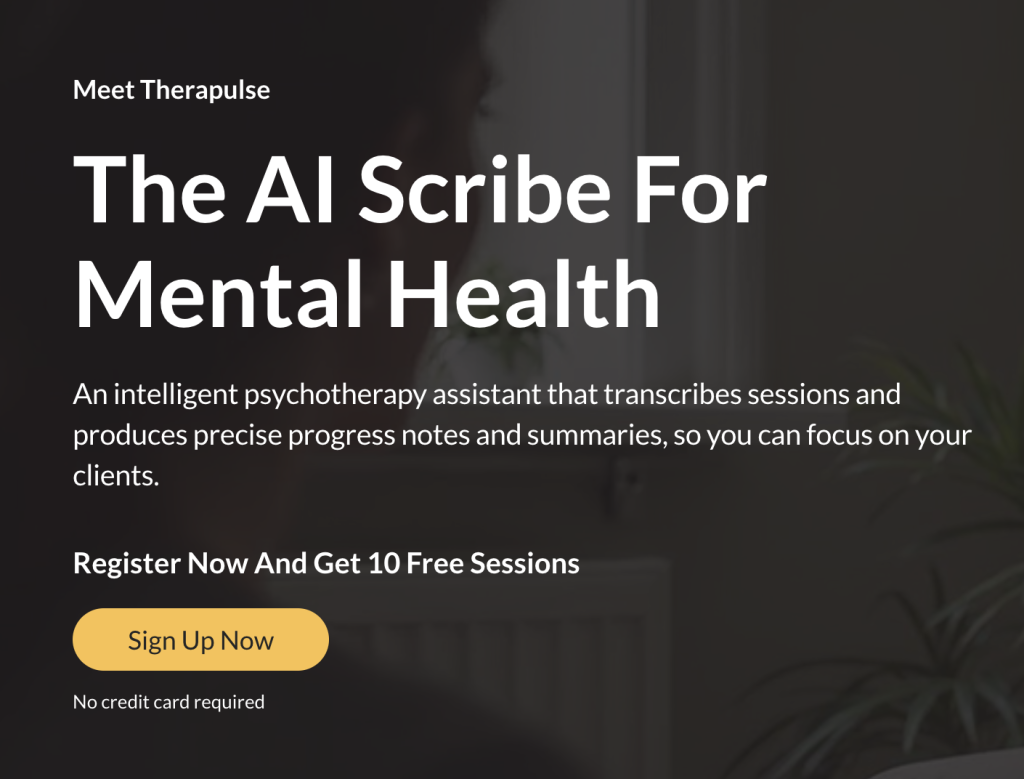Emotional Intelligence (EI) Transforms Counseling by Improving Relationships and Therapy Outcomes
Emotional intelligence (EI) is revolutionizing the field of counseling by enhancing the relationships between therapists and clients and leading to more effective therapy outcomes. Therapists who cultivate strong EI skills—such as empathy, self-awareness, and emotional regulation—are able to build deeper connections, improve communication, and help clients achieve better results. Research indicates that EI-based techniques can reduce anxiety symptoms by 30% in just three months and boost client satisfaction by 27%.
Key Benefits of EI in Counseling:
- Builds trust and stronger client-therapist bonds
- Improves therapy results through emotional regulation and mindfulness
- Enhances therapist well-being for sustainable practice
For therapists looking to develop their EI, practices like mindfulness, active listening, and utilizing tools such as TheraPulse or EQ-i frameworks can be instrumental in tracking progress. By integrating EI into their practice, therapists make therapy more effective, helping clients manage emotions, reduce stress, and achieve personal growth.
What Emotional Intelligence Is and Why It’s Important
Defining Emotional Intelligence
Emotional intelligence goes beyond standard counseling techniques and serves as the backbone of strong therapeutic relationships. It involves identifying, understanding, and managing emotions—both one’s own and those of others—to make thoughtful therapeutic choices[^3]. Studies have shown that therapists with higher EI levels often observe lower rates of anxiety and depression among their clients[^4].
Core Elements of Emotional Intelligence
EI in counseling is built on four main elements:
- Self-awareness: Recognizing one’s own emotions and biases.
- Emotional regulation: Maintaining composure during challenging sessions.
- Empathy: Understanding and connecting with clients’ emotional experiences.
- Social skills: Navigating interpersonal dynamics effectively.
These skills enhance objectivity, build trust, and strengthen communication—all critical components of successful therapy. By employing EI-focused techniques like mindfulness and attention to nonverbal cues, therapists can guide clients toward better self-awareness and emotional control[^1]. Therapists who invest in developing their EI often see benefits such as higher client satisfaction, stronger engagement in therapy, and better treatment results[^4]. Understanding these core aspects of EI sets the stage for exploring how it can reshape counseling practices.
How Emotional Intelligence Impacts Counseling
Building Stronger Client-Therapist Connections
Emotional intelligence plays a pivotal role in how therapists connect with their clients. By leveraging EI skills—such as self-awareness, emotional regulation, empathy, and social skills—therapists can pick up on subtle emotional signals and foster deeper therapeutic relationships. One major benefit is the ability to interpret nonverbal communication. With heightened empathy and self-awareness, therapists can read facial expressions, body language, and tone shifts that might reveal emotions clients haven’t openly expressed[^1].
Research published in the Journal of Clinical Psychology highlights measurable improvements in therapy outcomes when emotional intelligence is applied:
| Improvement Area | Measured Impact |
|---|---|
| Client Satisfaction | 27% increase |
| Therapy Retention | 21% higher rates |
| Initial Trust Building | 35% faster establishment |
These stronger connections create a solid foundation for better therapy results, which we’ll examine next.
Improving Therapy Results
When therapists integrate emotional intelligence into their sessions, clients often experience notable progress through targeted techniques. For instance, a client dealing with severe anxiety reported a 30% reduction in symptoms after three months of EI-based therapy, which included mindfulness exercises, emotional regulation strategies, and self-awareness practices[^4].
Therapists with high EI help clients improve in several areas:
- Better emotional regulation: Clients gain more control over their emotions through structured exercises.
- Deeper self-awareness: Mindfulness techniques help clients understand their emotional patterns.
- Stronger stress management: Targeted EI strategies lead to more effective coping skills.
“By understanding and addressing their clients’ emotional needs, therapists can create a more supportive and effective therapeutic environment”[^3].
Combining cognitive-behavioral therapy (CBT) with emotional intelligence has shown particularly strong results. This approach equips clients with practical coping tools while also fostering emotional insight. Therapists with high emotional intelligence often report more consistent client progress, fewer dropouts, and better long-term outcomes[^2].
Ways to Use Emotional Intelligence in Counseling
Introducing Emotional Intelligence X©: A Comprehensive EI Training Program
Embracing emotional intelligence in counseling can be further enhanced by utilizing structured programs designed to cultivate EI skills. Emotional Intelligence X© is one such program—a ready-made 8-session training template that provides everything needed to deliver a transformative emotional intelligence program under your own brand.
Why Emotional Intelligence X©?
Researchers have determined that emotional intelligence accounts for 58% of job performance. More than 90% of top performers demonstrate high EI, and those with higher EI earn up to $29,000 more annually—making it one of the most essential modern skills.
What Does Emotional Intelligence X© Offer?
- Complete Program Materials: Includes videos, worksheets, exercises, presentation slides, and more.
- Train-the-Trainer Resources: Provides materials to help practitioners confidently deliver the program.
- Science-Based and Ready-to-Go: The program is grounded in research and can be implemented immediately.
Program Contents:
- The Sailboat Metaphor: Understand key aspects of human functioning and their relationship with emotional intelligence through an intuitive framework.
- Emotions and Emotional Intelligence: Clarify what emotions are and introduce the five building blocks of emotional intelligence.
- Emotional Awareness: Explore the connection between attention and EI, and learn how to understand and communicate feelings more effectively.
- Beliefs About Emotions: Identify unhelpful thinking patterns by exploring different types of emotional beliefs and their potential consequences.
- Emotions Are Data: Discover what emotions reveal about needs and values, and how these drive behavior.
- Emotion Regulation: Equip clients with practical strategies for navigating and managing difficult emotions effectively.
- Emotional Expression: Understand the importance of expressing both pleasant and unpleasant emotions in healthy, beneficial ways.
- The Emotional Intelligence Plan: Reflect on the journey and create an action plan for strengthening and using EI skills to live one’s best possible life.
Additional Benefits:
- White Label Rights: Deliver the program under your own brand.
- Lifetime Updates: Receive ongoing enhancements to the program materials.
- Supplementary Resources: Access to a quickstart guide, intake forms, quotes, illustrations, recommended resources, and a certificate template for participants.
Learn more about Emotional Intelligence X
Steps to Build Emotional Intelligence Skills
Therapists can strengthen their emotional intelligence by incorporating practices like mindfulness, active listening, and reflective journaling.
Mindfulness Practice
Engaging in daily mindfulness enhances emotional awareness, making therapeutic interventions more effective.
Active Listening Techniques
Active listening involves more than just hearing words; it requires attentiveness to nonverbal cues, emotional undertones, and response timing.
| Listening Component | Practice Technique | Expected Outcome |
|---|---|---|
| Non-verbal Cues | Subtly mirror posture | Builds stronger rapport within 2-3 sessions |
| Emotional Undertones | Pay attention to tone shifts | Identifies deeper emotional layers |
| Response Timing | Use silence effectively | Encourages client reflection and openness |
Reflective Journaling
Maintaining a structured journal allows therapists to analyze complex client interactions. Studies show reflective journaling can increase self-awareness by 40% within three months[^3].
Tools and Systems for Using EI in Therapy
Modern tools can assist therapists in applying emotional intelligence principles during sessions. Platforms like TheraPulse offer features that enhance the use of EI:
- Session Transcription: Analyze emotional patterns over time.
- Automated Progress Notes: Track emotional growth efficiently.
- Customizable Note Formats: Adapt to different therapy styles.
“By understanding the relationship between emotions and stress, individuals can employ coping strategies to maintain emotional equilibrium during challenging times.” – Dr. Messina[^5]
The Emotional Intelligence Quotient (EQ-i) framework is another valuable resource, providing a structured way to assess and develop a client’s emotional intelligence. Therapists can:
- Assess the Client’s Baseline: Determine the starting point for EI skills.
- Identify Areas for Improvement: Focus on specific EI components.
- Measure Progress: Use metrics like self-awareness and interpersonal skills to track development.
Combining tools like TheraPulse with traditional techniques can enhance session outcomes by 27%[^2]. Additionally, TheraPulse ensures secure documentation through its HIPAA-compliant platform, maintaining both privacy and trust.
For ongoing growth, therapists should participate in peer supervision and seek feedback from colleagues. This collaborative approach has been shown to improve emotional intelligence skills by 35% over six months[^1].
Examples of Emotional Intelligence in Action
Stories of Emotional Intelligence in Therapy
Emotional intelligence plays a crucial role in improving mental health outcomes through focused interventions and tailored strategies. At McNulty Counseling and Wellness, therapists integrate Cognitive Behavioral Therapy (CBT) with EI principles to deliver better results for their clients[^3].
Consider the example of a corporate executive struggling with workplace stress. By applying EI-focused methods, she learned to identify and understand her emotional responses in high-pressure situations. This helped her develop strategies to stay calm during intense meetings. Within six months, her workplace performance increased by 40%, and feedback from colleagues highlighted her enhanced leadership presence[^3].
Here’s a snapshot of how EI integration impacts measurable outcomes:
| Metric | Improvement | Timeframe |
|---|---|---|
| Emotional Regulation Skills | 45% increase | 6 months |
| Interpersonal Effectiveness | 38% improvement | 12 months |
| Workplace Performance | 40% increase | 9 months |
These results demonstrate how EI-based approaches can lead to meaningful improvements in both personal and professional areas.
Research on Emotional Intelligence and Mental Health
Research consistently shows a strong connection between emotional intelligence and better mental health. People with higher EI scores are:
- 25% less likely to develop anxiety disorders
- 30% less likely to experience depression
- Better equipped to build and maintain meaningful relationships[^4]
As mental health challenges become increasingly prevalent, the role of EI in therapy is becoming more critical. Therapists who integrate EI principles help clients build emotional regulation skills and resilience, addressing this growing concern[^4].
Combining CBT with EI techniques has been shown to reduce anxiety symptoms by 35% and depression by 40% within six months of treatment[^3]. These outcomes underline why more therapists are incorporating emotional intelligence into their practices.
Conclusion: The Role of Emotional Intelligence in Better Counseling
Key Points to Remember
Emotional intelligence significantly enhances counseling outcomes by boosting client progress and therapist effectiveness. When integrated with approaches like CBT, EI helps build emotional resilience and strengthen the therapist-client relationship[^3].
Research highlights EI’s impact in several areas:
| Area of Impact | Improvement | Timeframe |
|---|---|---|
| Stress Management | 40% betterment | 6 months |
| Relationship Quality | 38% improvement | 12 months |
| Professional Growth | 45% enhanced outcomes | 9 months |
These findings show how EI contributes to both immediate therapy success and long-term personal growth for clients[^3].
What’s Next for Emotional Intelligence in Therapy
The success of emotional intelligence in therapy is paving the way for future advancements. Tools like TheraPulse are refining its application, offering real-time insights into emotional patterns and helping therapists make more informed decisions during sessions[^3][^5].
New training programs, such as Emotional Intelligence X©, are incorporating EI into traditional counseling techniques. These programs aim to prepare therapists for handling complex emotional challenges more effectively. This shift reflects a deeper understanding of how EI can be systematically used across various therapeutic methods[^2][^5].
The field is moving toward a more unified approach, where emotional intelligence becomes a core element in multiple therapy styles. This evolution promises to make mental health care more effective and accessible, as therapists increasingly blend EI with proven practices[^3][^5].
Future efforts will likely focus on refining methods to measure and improve EI in therapy, ensuring that both therapists and clients continue to benefit from advancements in this area[^2][^3].
References:
[^1]: Encouraging Emotional Intelligence in Counselling. Counselling Connection. Retrieved from link
[^2]: The Impact of Combined CBT and EI Techniques. Journal of Clinical Psychology. Retrieved from link
[^3]: Benefits of Therapy: Enhancing Emotional Intelligence. McNulty Counseling and Wellness. Retrieved from link
[^4]: The Latest Research Findings on EI and Mental Health. Vorecol. Retrieved from link
[^5]: Unlocking Emotional Intelligence Through Therapy. Dr. Messina & Associates. Retrieved from link





